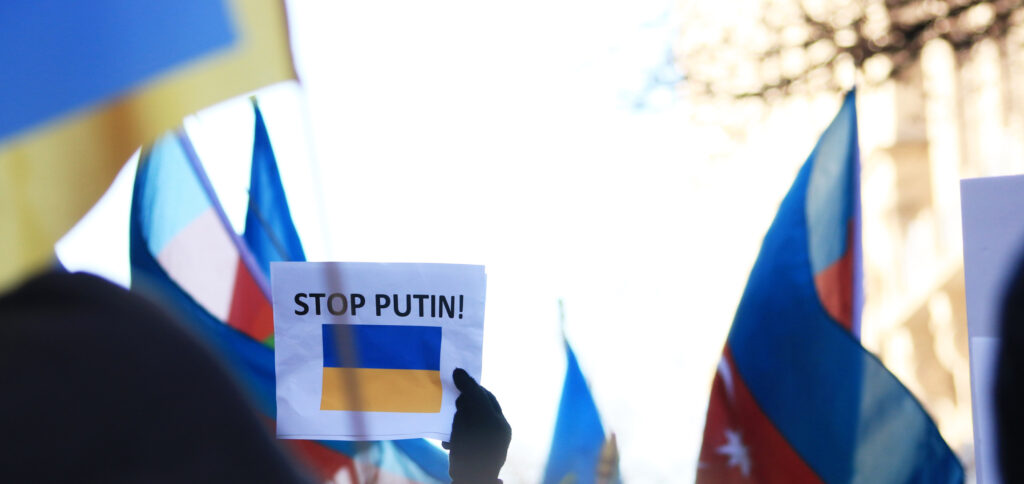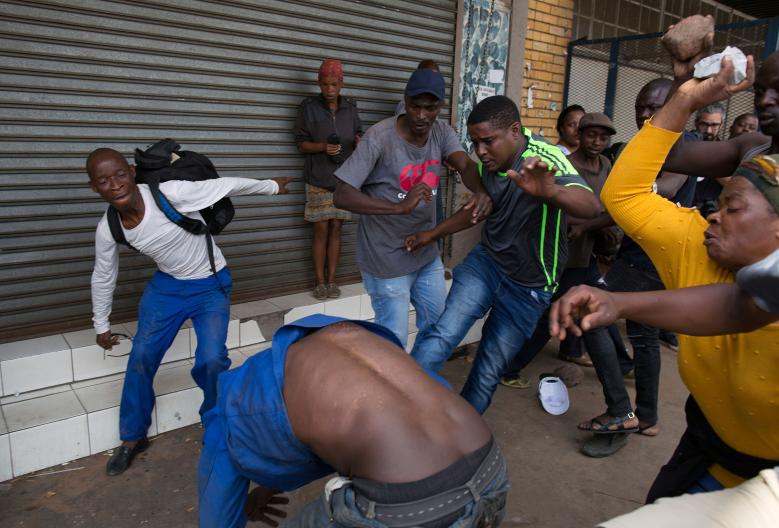LOS ANGELES — The question of whose lives matter has been hotly debated for years, but with the recent escalation of the Russian war in Ukraine, it seems the answer is clear for mainstream Western media: white, European lives matter.
On Feb. 24, Russia launched a full-scale military invasion of Ukraine under the guise of a “special military operation,” which has already resulted in over a thousand civilian casualties and more than 1.5 million refugees fleeing the country just within the first ten days. With this war creating the “fastest-growing refugee crisis in Europe since World War II,” the world has reacted to these atrocities accordingly. Public outcry — whether in the form of digital solidarity under the #StandWithUkraine hashtag or international governments’ public condemnation of Russia — has been both impactful and rightful in its intention, but it is also important to criticize this outcry. Because amid global media’s coverage of the crisis, racist undertones of several journalists and outlets have started to emerge.
In an interview with the BBC, David Sakvarelidze, Ukraine’s deputy chief prosecutor, expressed his discontent with the situation.
“It’s really emotional for me because I see European people with blue eyes and blonde hair being killed, children being killed every day with Putin’s missiles,” he said.
Likewise, in an article in The Telegraph, journalist Daniel Hannan wrote about why this war is unique and surprising.
“They seem so like us,” he wrote. “That is what makes it so shocking.”
Furthermore, NBC correspondent Kelly Cobiella reported on how and why Ukrainian refugees are unlike those from other conflicts around the world.
“Just to put it bluntly, these are not refugees from Syria, these are refugees from neighboring Ukraine,” Cobiella wrote. “These are Christians, they are white, they’re very similar to the people that live in Poland.”
Similar sentiment — expressing the so-called uniqueness of Ukraine — has been found across major Western media outlets. CBS News Foreign Correspondent Charlie D’Agata went so far as to describe the dissimilarities of the Ukraine war and other wars, calling Kyiv a “civilized city.”
“This isn’t a place […] like Iraq or Afghanistan that has seen conflict raging for decades, this is a relatively civilized, relatively European city,” he wrote.
In this language, it’s easy to see a harmful pattern emerge. D’Agata’s comments are especially hypocritical considering that in the countries he degrades as having “conflict raging for decades,” much of this destabilization has escalated to the level it is at now because of complex histories and legacies of Western imperialism and invasion — much of which is at the hands of European countries.
The choice of language used in all of these recent examples is telling as to what kind of content the media chooses to air and publish, and what sentiments are being promoted. Racial microaggressions that allude to white supremacist thinking are rampant, even in the few examples outlined here.
The use of words such as “civilized,” “like us,” “blue eyes and blonde hair,” in attempts to evoke empathy from viewers and readers, beg the question of who the targeted audience or consumers of this media are. What people comprise “us?” If it is indeed white Europeans, a message is sent to the ‘others’ — the people of color, the “uncivilized,” the ones in areas with “conflict raging for decades” — that their struggles and experiences in conflict are expected, and are unworthy of genuine empathy and global sympathy.
Individually, these comments are heinous, and somewhat hypocritical considering the reporters who made these comments may not even possess the very features they laud as worthy of caring about. However, the conglomerate of these instances is indicative of a larger issue of Eurocentrism and white supremacy in mainstream media, especially considering the channels and networks that dominate are largely American or European.
The racial microaggressions used by the media are an explicit way of expressing Eurocentrism and white supremacy in the news, but the lack of or selectivity of what stories actually get covered is also an implicit way of expressing these sentiments.
But this issue is not new; the world has seen countless instances of mainstream media repeatedly prioritizing the coverage of white, European individuals and publics experiencing conflict or injustice over that of people of color.
This challenge is often seen beyond the coverage of conflict. Take the concept of “missing white woman syndrome,” for example. Women like Gabby Petito, Sarah Everard and Madeleine McCann experienced a level and duration of news coverage that enormously surpassed the level of coverage of any of the missing Black women, who make up over one-third of all missing women just in the United States alone, or other women of color.
The West unfairly gets to dictate what is newsworthy and what is not. Sure, some may claim the discrepancy in media coverage, language used and emotions conveyed is due to a difference in relatability of the stories, but the true root of this problem is racial bias, which should not carry over into what is promised to be unbiased and independent news reporting.
Moving forward, mainstream media platforms need to publicly shed light on and condemn the racism present in the language of their reporters and on their platforms as a whole. As a global community, the bar must be raised.
The problem is not that the world is doing too much in support of Ukraine, it is that the world is not doing nearly enough for the dozens of other active conflicts currently happening globally. Erasing media bias entirely is difficult, and perhaps impossible. But it’s a pursuit necessary in ensuring that coverage of world events is not disproportionately increased just because it fits the comfort and agenda of the West.







